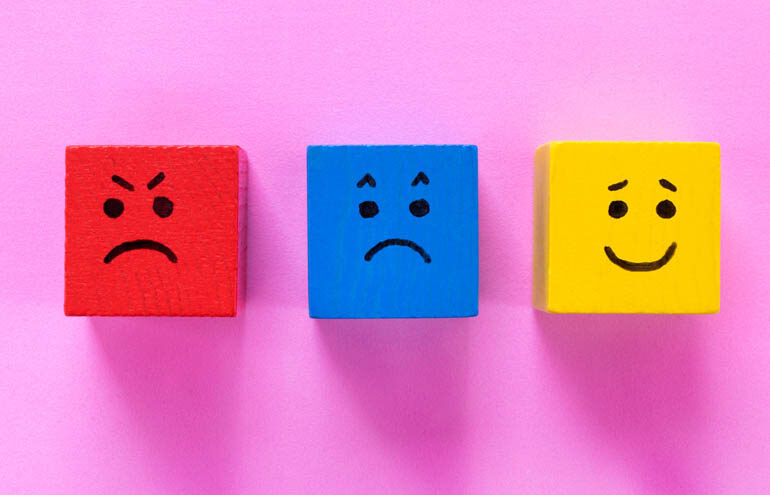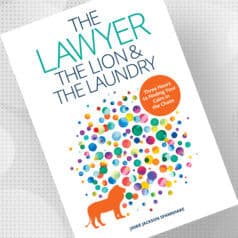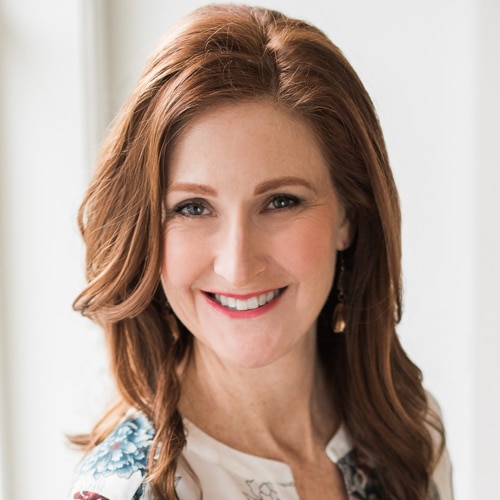Have you considered that your closely held beliefs about your worth — the ones that send you spiraling into negativity — may not be true? Here’s advice from Jamie Spannhake on challenging and changing your core beliefs.

Table of contents
- What You Believe Is True — Even When It’s Not
- Recognizing and Changing Your Core Beliefs
- 1. Start by Recognizing Your Thoughts
- 2. Analyze Your Thoughts to Discover Your Underlying Beliefs
- 3. Now, Challenge Those Beliefs and Thoughts
- 4. Experiment With a Different Belief
- 5. Keep Trying to Show Yourself Compassion
What You Believe Is True — Even When It’s Not
Our beliefs about ourselves and the world make up our core beliefs. They are assumptions we make. But they may not be facts. In other words, just because you believe it to be true doesn’t mean it is.
The definition of assumption is “a thing that is accepted as true or certain to happen, without proof.” You might think that lawyers, of all people, would be better about not making assumptions. We know the deal isn’t done until the papers are signed, and the money arrives in the bank. We are familiar with the adage, “If you can’t prove it in court, then it doesn’t win the case.” We want facts. We want proof.
Yet lawyers rely on core beliefs — assumptions — just as much as the next person. Because we can’t help it and may not even know we are doing it. I mean, if you just “know” something to be true, you don’t question whether it’s true.
And therein lies the problem.
Sometimes those core beliefs are the very things that hold you back or make life more difficult than it has to be. But we all have some ability to change that by recognizing — and possibly changing — our core beliefs.
Recognizing and Changing Your Core Beliefs
Psychologists will tell you that changing your core beliefs is a tall order, but that doesn’t mean you can’t try. Just because a journey is long doesn’t mean you don’t start it. In fact, because the journey is long, it’s best to start sooner rather than later.
Here are five ways to start recognizing, challenging and changing core beliefs that aren’t serving you.
1. Start by Recognizing Your Thoughts
One of the best ways to do this is through mindfulness. And one of the best ways to cultivate mindfulness is through meditation. Meditation helps improve your ability to have a moment in the moment to turn your attention to what you are thinking and feeling. It allows you to be more objective about what is happening and how you are reacting.
If you have a meditation practice already, you have seen these benefits. If you had a practice in the past, commit to starting it again. And if you’ve never tried meditation, it’s easy to start.
I like to share a quick two-minute meditation with coaching clients:
Focus on your breath while sitting comfortably, then count one for your in-breath, two for out-breath, and so on, until you get to 10. Then count back down from 10 to one with your breath. It’s a quick, easy way to reset and start developing a meditation practice.
Or, if you prefer guided meditations, YouTube and InSight Timer have free guided meditations, as does Tara Brach, who offers many free meditation courses and sessions.
2. Analyze Your Thoughts to Discover Your Underlying Beliefs
Once you’ve recognized your thoughts, take time to consider the belief that underlies those thoughts. This may be a good place to start working with a therapist because some core beliefs protect you from emotions you don’t want to experience. Also, a skilled therapist can help you process those emotions safely and productively, especially if you’ve experienced trauma.
One way to analyze thoughts and discover your underlying beliefs is to “go down the rabbit hole” of what it means if your thought is, in fact, true. When you ask what it means when you think “I need to do more at work,” your next thought might be that you don’t do enough or you’re not successful enough. And the thought that follows could be “I’m not enough.” BAM! That’s your underlying core belief, and it’s not helping you live your best life.
3. Now, Challenge Those Beliefs and Thoughts
You don’t need to look for evidence that your core beliefs are true. You are already very familiar with all those things you think are facts. So, like any good lawyer, look for evidence that what you think and believe is not true. For example, is it really true that you always mess things up? Is there evidence to the contrary? What about the success you’ve had in the past that you’ve suddenly forgotten or diminish as not important?
Regularly using the words “always” and “never” is a signal that you may be overlooking evidence that challenges your negative core beliefs. This kind of black-and-white thinking is often a clear sign that your perspective may not be based in fact.
4. Experiment With a Different Belief
It may seem impossible if you’ve had a core belief for as long as you can remember, but you can experiment with beliefs and ideas different from your usual ones. In the beginning, this will feel fake. It is, after all, contrary to what you’ve seen as truth for a long time. But give it a try. There’s nothing to lose.
If you feel like you’re “never” good enough, spend an hour one day acting as if you are good enough for that one hour. You may find that the new belief is just as plausible as your old negative belief. Again, if you struggle to break out of patterns, a coach or therapist can help you recognize and challenge those thoughts.
5. Keep Trying to Show Yourself Compassion
Any change is hard, and changing a core belief can be very difficult. All you can do is try and keep trying. Showing yourself compassion will help you as you journey down the path to a better perspective and a better life.
Image © iStockPhoto.com.

Don’t miss out on our daily practice management tips. Subscribe to Attorney at Work’s free newsletter here >
Have You Read Jamie Spannhake’s Bestselling Book?
 Find Your Calm in the Chaos
Find Your Calm in the Chaos
In “The Lawyer, the Lion, and the Laundry: Three Hours to Finding Your Calm in the Chaos,” lawyer and certified health coach Jamie Spannhake helps you learn how to CHOOSE, ACT and THINK in ways that will clarify your desires and set priorities so you can reclaim your time and enjoy your life.
Available in the Attorney at Work bookstore, here.





















